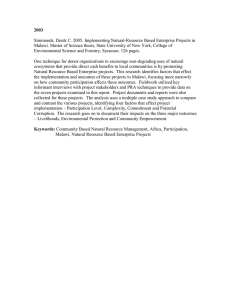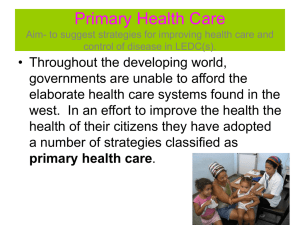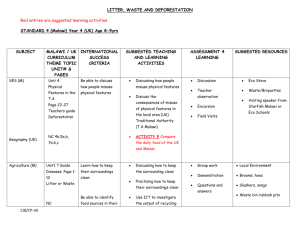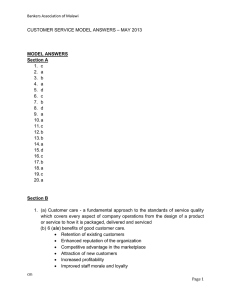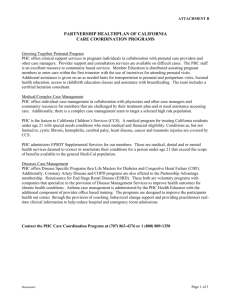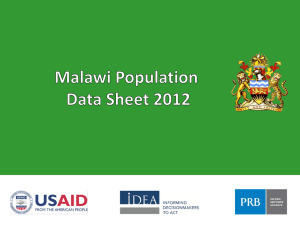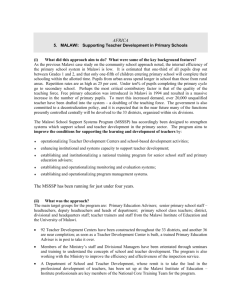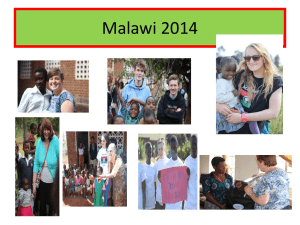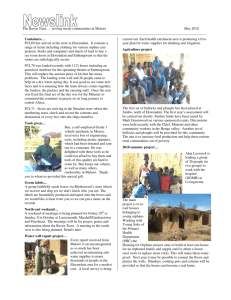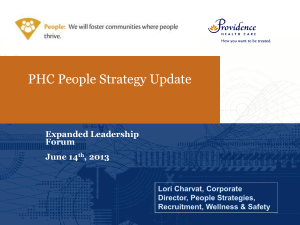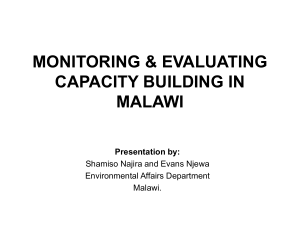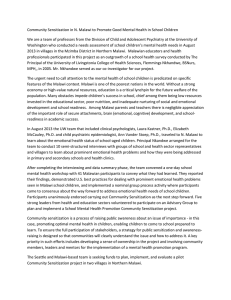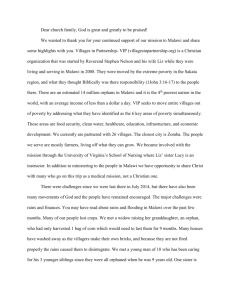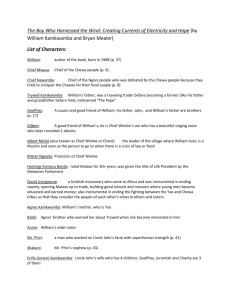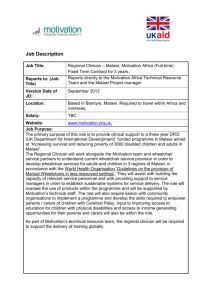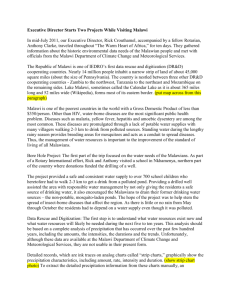Human Resources for Health
advertisement
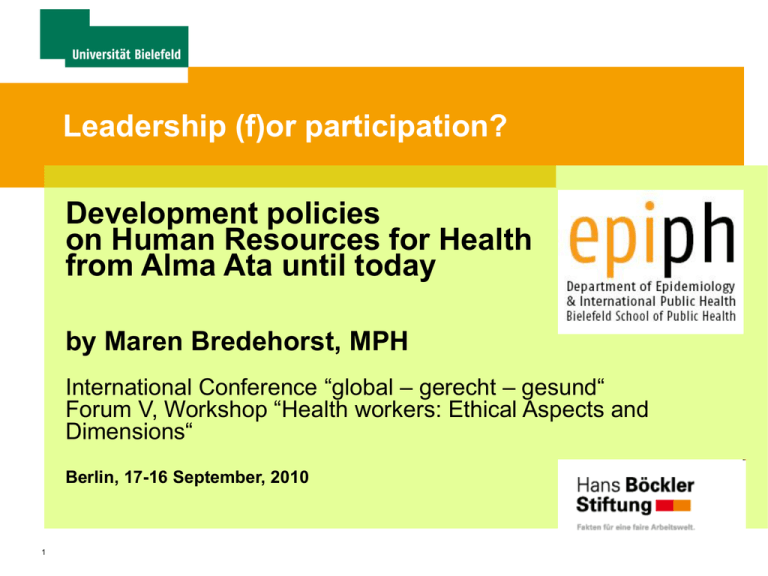
Leadership (f)or participation? Development policies on Human Resources for Health from Alma Ata until today by Maren Bredehorst, MPH International Conference “global – gerecht – gesund“ Forum V, Workshop “Health workers: Ethical Aspects and Dimensions“ Berlin, 17-16 September, 2010 1 Introduction Historical perspective on development policies in health and their implications for Human Resources for Health (HRH) Example: Republic of Malawi Focus on the concepts of leadership, professionalism and community participation contradictions of underlying principles? challenges and options for health professionals / experts? 2 ‘Human Resources for Health’ policies in Malawi (1964-1993, Banda-era) • post-independence: manpower and facilities • under-five clinics 1973-75 • Primary Health Care 1978 (pilot: paid PHC workers; then turn to volunteers / Health Surveillance Assistants) • Increased sensitivity for workforce profile (skills) and management in 1986-95 National Health Plan • College of Medicine 1991, emphasis on community health 3 ‘Human Resources for Health’ policies in Malawi (1994-present, multi-party system) • HIV/AIDS: increasing workload and health worker attrition • attempts at strategic HR planning • Academic training: Bachelor and Master programmes – but no formal career paths • Health Sector-Wide Approach with Human Resources Emergency Plan • Global Fund applications (incl. Health Systems Strenthening) 4 Volunteering and professionalism Alma Ata Declaration incorporates both: a) spirit of self-reliance and self-determination; participation; community health workers b) train existing health cadres for PHC implementation; develop a scientific base • Malawi’s Health Surveillance Assistants: ambivalent role, core cadre for service delivery in communities • Professional view: Who regulates and supervises increasing numbers of volunteers and auxiliaries? (Dräger et al. 2006) 5 Leadership concepts in health • shift from ‘social dimension of PHC’ (Flahault 1986) towards capacity development / governance / stewardship • ‘good practice’ principles for leaders: Health outcomes, Evidence-based, Aligned, Long-term, Transformational, Harmonized (WHO 2007) • leaders as ‘brokers’ for PHC and moderators of political processes; participation as ‘transparent processes’, ‘empowerment of health professionals’ (WHO 2008) 6 WHR 2008: Primary Health Care – now more than ever Challenges and options for health professionals / experts Approach to health: needs vs. rights - from professionally-led to user-led initiatives? - empowerment? Professionalisation: organizational vs. occupational - third logic besides market and bureaucracy - collective action under the global aid regime? Rappaport (1981) Evetts (2006) Escobar (1995) 7 Knowledge systems: standardisation vs. openness - information needs of development institutions - social research for alternative knowledge / value systems Conclusion Leadership and community participation (and their link) have often been neglected in HRH policies Participation should be established as a value / principle in the process of professionalisation in Public Health Reflective practice is required Political nature of health has to be recognised by all stakeholders, at all levels 8 - Thank you for your kind attention! - References : Dräger S, Gedik G, Dal Poz MR (2006) Health workforce issues and the Global Fund to fight AIDS, Tuberculosis and Malaria. Human Resources for Health 4:23 Escobar A (1995) Encountering Development. The making and Unmaking of the Third World. Princeton University Press Evetts J (2006) Short Note: The Sociology of Professional Groups : New Directions. Current Sociology 54: 133 Flahault D, Roemer MI (1984) Leadership for Primary Health Care. Levels, functions and requirements based on twelve case studies. WHO, Geneva Rappaport J (1981) In Praise of Paradox. A Social Policy of Empowerment over Prevention. American Journal of Community Psychology 9 (1): 1-25 WHO (2008) World Health Report 2008: Primary Health care – now more than ever. WHO, Geneva WHO (2007) Towards better leadership and management in health. WHO/HSS/healthsystems 2007.3 Photos: M. Bredehorst 2009; Map and flag of Malawi : www.wikipedia.org 9
